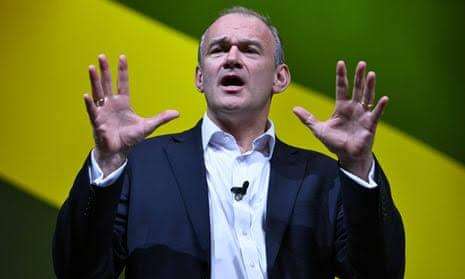The visit of a high-profile US delegation to Bangladesh and successfully holding meetings with the head of the interim government and different stakeholders concerned primarily shows Washington's commitment to Dhaka to reach the bilateral relations to a new height at the political and economic levels, said diplomats, policy makers and business leaders.
The USA delegation included Donald Lu, the US Assistant Secretary of State; Brendan Lynch, Assistant US Trade Representative; Anjali Kaur, Deputy Assistant Administrator; and Jerrod Mason, a Director of the US Treasury Department.
The relations between the USA and Bangladesh suffered heavily during the previous regime when the former Prime Minister of Bangladesh Sheikh Hasina showed blind eye to Washington’s prescription of transparent, credible and reliable parliament election, upholding human and labour rights and healthy relations among the political parties.
Sources in Dhaka and Washington said USA’s political commitment to Bangladesh is very crucial and important as India, the neighboring country, has been deeply upset by the ouster of Sheikh Hasina, its most reliable ally and partner in the region.
Bangladesh suffered heavily after the independence when Washington-Dhaka relations reached a low in the post-cold war era leading to starvation in 1974. The history says that during British rule, starvation caused deaths of several lakh people in undivided Bengal and after that in post-independent Bangladesh, several lakh Bangladeshis also lost their lives in starvation.
Sources however said that Bangladesh is unlikely to get back GSP privilege in the USA market or new and major USA investment in Bangladesh is unlikely to come in the short term unless necessary political and economic reforms are carried out by the interim government.
Former dictator Prime Minister of Bangladesh Sheikh Hasina on several occasions in parliament and after quitting power complained that the USA proposed to her in setting up a military in Saint Martin's island . As Sheikh Hasina denied the USA proposal, Washington prepared a master plan to oust her.
The US Department of State has rejected all allegations in regard to taking over Saint Martin's Island in Bangladesh.
During a press conference recently, Matthew Miller, spokesperson for the US Department of State, asserted that the United States has never engaged in any discussions regarding taking control of St Martin's Island or has any intention to do so.
Former dictator Prime Minister Sheikh Hasina, without taking any name, said she will not resort to selling any national assets or compromising the country's sovereignty to stay in power.
Major General (retd) Nayeem Ashfaque Chowdhury while talking to the Dazzling Dawn said that former Prime Minister Sheikh Hasina’s claim of US interest in setting up a military in Saint Martin's island is baseless. He said the US has military bases in KSA, Qatar, Bahrain, Kuwait, South Korea, Japan and the Philippines that can cover the USA interest in the whole Indian ocean. The existing location and environment in Saint Martin's Island are not conducive to setting up a military base, other Bangladesh would have set up its military base in the island. Even the neighbouring country will not allow the setting up of a US military in Saint Martin's Island.
To a question, a former senior Bangladesh diplomat who worked in Washington DC said that the USA directly gives cash support to Israel and Egypt in the world. Bangladesh has been experiencing dollar crisis since 2021 as the previous Awami League leaders in convenience with some businessmen siphoned off billions of US dollars creating economic crisis in Bangladesh.
However, the former Bangladesh diplomat said” Evidently, lion’s share of the money illegally sent abroad has gone to the US and its allies including UK and Canada. How the US can help in returning the huge amount of money illegally sent to the US and elsewhere must have been an important subject of discussion. We don’t know what actually was discussed and what has been the outcome. Treasury also deals with sanctions. So far few Bangladeshi officials have been sanctioned under Magnitsky Act. On human rights ground. No sanction has yet been made on corruption issue. The treasury man Brent Neaman led the US delegation, not the State Deppt man Donald Lu. So there was more financial components than political components. And corruption issue cannot be ruled out to be on the agenda.”
During the visit, USAID signed a development agreement worth over $200 million with the interim government to support Bangladesh in advancing development, strengthening governance, expanding trade, and creating greater opportunities for the Bangladeshi people to build a brighter and more prosperous future.
From 2021-2026, USAID has committed nearly $1.0 billion to help improve the lives of the Bangladeshi people.
The United States of America is a trusted development partner of Bangladesh since 1972. Under an umbrella agreement titled "Economic Technical and Related Assistance" which was signed in 1974, USA has contributed more than $8 billion till today in different sectors like democracy and governance; food security; health and education; global climate change.
The USA provides most of its development assistance through USAID, United States Department of Agriculture (USDA) and some other government and non- government organizations.
Meanwhile, the American Chamber of Commerce leaders at a breakfast meeting with Assistant Secretary for International Finance at the US Department of the Treasury Brent Neiman at the residence of US Embassy Charge d' Affaires (Cd’A) Helen LaFave mentioned that dollar crisis, port congestion, backdated customs law, security concern and energy crisis stand in the way of bringing in new US investment in Bangladesh.
President of American Chamber of Commerce and Country Manager & Managing Director of Expeditors (Bangladesh) Ltd Syed Ershad Ahmed, and Vice President of American Chamber of Commerce and President of Chevron Bangladesh Eric M. Walker, Citi Country Officer for Bangladesh of Citibank, N.A Md. Moinul Huq and Managing Director of Coca-Cola Bangladesh Limited Ju-un Nahar Choudhury, USAID mission director Reed J Aeschliman, Country Manager of MasterCard Singapore Holding Pte Ltd Syed Mohammad Kamal, among others, attended the breakfast meeting.
Former Bangladesh Ambassador to the USA M Humayun Kabir said in an interview with The Business standard that the development of the US-Bangladesh relations, in my opinion, is positive. The reason is that, at this moment, our needs and their commitment to cooperation are aligned, which brings us a sense of relief.
We are currently facing numerous challenges, especially economic ones, such as issues in the banking sector, foreign currency shortages, money laundering, and fuel crises. To overcome these challenges, we require support, and yesterday's meeting with the US delegation provided us with some assurance that they will stand by us, which is reassuring.
Additionally, regarding the reforms we are working on, while we are capable of doing many things ourselves, we may still require external technical support, and we can seek their cooperation in these areas as well.
I believe that their assistance will be a positive development for both our current challenges and our future plans.
On the other hand, at this time, we have not received any such assurances from any other source regarding assistance to address our current economic challenges. In this context, as the US is stepping forward to cooperate with us, I do not see any reason why we shouldn't work with them, nor do I believe that doing so will upset any other countries.
I also don't think their cooperation will significantly influence us internally. Beyond economic strengthening, we need to undertake many reforms. For a long time, the US has been advising us on political and institutional reforms, and we are now working on institutional reforms. They didn't specifically mention these reforms in the current context, but for our own benefit, we are implementing reforms—such as banking and stock market reforms. Six commissions have been established to reform various institutions. If we want to make our democratic framework sustainable, there is no alternative to these reforms. We must carry them out. And if the US helps us while we're doing this, there is no issue with that.
The essence of bilateral friendship is standing by each other in times of need. In that case, we will welcome those who come to support us. But this doesn't mean that we will view it as a trade-off or that we will harm our relations with others.
Keeping our own needs and interests in mind, we will maintain relations with everyone and work with whoever we need to, on whatever issue requires collaboration at the time.
Dhaka and Washinton will work closely on reaching the multilateral relations between two countries to a new height in the coming days as a high-powered USA delegation visited Bangladesh last week during their maiden visit to Bangladesh after the formation of interim government led by Chief Adviser Prof Muhammad Yunus on 8 August, sources in Dhaka and Washington DC said.
The high-profile US delegation held meetings with Chief Adviser Professor Muhammad Yunus, Foreign Adviser Md Touhid Hossain, Finance and Commerce Adviser Dr. Salehuddin Ahmed., Bangladesh Bank Governor Ahsan H Mansur and Foreign Secretary Jashim Uddin.
Dhaka and Washinton will work closely on reaching the multilateral relations between two countries to a new height in the coming days as a high-powered USA delegation will arrive in Dhaka on Saturday during their maiden visit to Bangladesh after the formation of interim government led by Chief Adviser Prof Muhammad Yunus on 8 August, sources in Dhaka and Washington DC said.
Meanwhile, Chief Adviser Professor Muhammad Yunus sought support from the United States to rebuild Bangladesh, carry out vital reforms and bring back stolen assets.
He sought the assistance when a high-powered US delegation met him at the State Guest House Jamuna in Dhaka.
The Chief Adviser described the challenges that the interim government is facing and said his administration has moved quickly to "reset, reform, and restart" the economy, initiate reforms in financial sectors, and fix institutions such as the judiciary and police.
"It is a very important time for us and a significant moment in our history," he said, as he spoke about the student-led revolution, which has ushered in a new era of hope in Bangladesh.
The 2006 Nobel Peace Prize winner gave an outline of the reform initiatives undertaken by the interim government and said six commissions have been set up barely weeks after his government took over in an effort to prevent vote rigging and reform judiciary, police, civil administration and the country's anti-graft agency and to amend the constitution.
Prof Yunus said his government was committed to getting back the stolen assets siphoned off by corrupt individuals linked with the previous autocratic regime.
"We were in an ocean of corruption," the Chief Adviser said, while describing the challenges the government faces to tackle graft.
The US delegation, led by Brent Nieman, the assistant secretary of the US Treasury Department, praised Prof Yunus's leadership and said Washington DC would be happy to support his reform agenda.
US officials said they were eager to offer technical and financial assistance for reforms being carried out by the interim government.
During the hour-long talks, financial and economic reforms, investment, labour issues, the Rohingya crisis and the Chief Adviser's upcoming visit to New York to join the UN General Assembly were also discussed.
Donald Lu, the US Assistant Secretary of State; Brendan Lynch, Assistant US Trade Representative; Anjali Kaur, Deputy Assistant Administrator; and Jerrod Mason, a Director of the US Treasury Department; represented the US in the meeting.
Lutfey Siddiqi, the special envoy of the Chief Adviser on international affairs; Lamiya Morshed, senior secretary and the head of SDG affairs, Md. Jashim Uddin, foreign secretary, and Md. Shahriar Kader Siddiky, secretary of the Economic Relations Division, also attended the meeting.
BSS adds: Bangladesh Bank (BB) has received a total of US$ 2.5billion loan proposal from the World Bank (WB) and the Asian Development Bank (ADB) in several packages, including structural reform, policy implementation, and investment loan.
The proposal was given in a meeting of the central bank Governor Ahsan H Mansur and other senior officials with delegations of the WB and the ADB at BB headquarters in the city, confirmed BB Spokesperson and Executive Direction Husne Ara Shikha.
"A $1 billion loan proposal was received from the World Bank. They proposed a $750 million policy-based loan for which the central bank needs to do some policy implementation. Also, $250 million in investment loans are under process," the BB spokesperson said.
On the other hand, the ADB proposed a $1.5 billion policy-based loan in three phases which includes a $200 million investment loan, central bank Spokesperson Shikha said, adding that $500 million of the loan can be received by 2025.
Meanwhile, the visiting US delegation, led by Brent Nieman, the assistant secretary of the US Treasury Department, called on the central bank governor today. The delegation was informed about the macro-economic situation of the country.
The US treasury team did not mention any loan amount to the central bank, the BB spokesperson said.
Meanwhile, the government has discussed with the visiting US delegation the issues relating to economic reforms, supports in financial sector and the measures for bringing back siphoned off money from abroad.
Adviser to the interim government on the Ministries of Finance and Commerce Dr Salehuddin Ahmed said this replying to queries of reporters after holding a meeting with the visiting US delegation and witnessing the signing of an amendment to a grant agreement held at the State Guest House Padma in the capital.
The United States Agency for International Development (USAID) will provide $202.25 million grant to Bangladesh in three sectors namely good governance; social, human and economic opportunity; and resilience.
In this regard, the 6th amendment of the "The Development Objective Grant Agreement (DOAG)" was signed between Bangladesh and USAID at the State Guest House Padma in the capital.
Economic Relations Division (ERD) Additional Secretary AKM Shahabuddin and USAID Mission Director Reed J. Aeschliman signed the amendment on behalf of the government of Bangladesh and USAID respectively.
Adviser to the interim government on the Ministries of Finance and Commerce Dr Salehuddin Ahmed, visiting US Assistant Secretary for International Finance of the US Department of Treasury Brent Neiman and US State Department Assistant Secretary for South and Central Asia Donald Lu, among others, witnessed the signing ceremony.
Finance Division Secretary Dr Md Khairuzzaman Mozumder and ERD Secretary Shahriar Kader Siddiky were also present.
Dr Salehuddin said the today's discussion with the US delegation mainly focuses on with the treasury department and with USAID where the issues relating to financial sector reforms to ensure good governance and availing support in financial sector got priority.
Besides, there were discussions on export diversification, availing technical assistance in trade and exploration of markets. "We've to move ahead with specific work plan and they (USA) have assured us of providing support,"
Meanwhile, the high-level United States (US) delegation offered commitment to help expand Bangladesh's economic opportunities, build its institutional capacity and uphold human rights, the US embassy said.
"We are committed to helping expand economic opportunities, build institutional capacity, uphold human rights, and mitigate climate risks with our partner, Bangladesh," it said.
The US embassy revealed this on its official Facebook page after a meeting between Foreign Adviser Md Touhid Hossain and the visiting delegation at the state guest house Padma in the capital.
The US delegation was headed by Assistant Secretary for International Finance of the US Department of Treasury Brent Neiman and comprised by US State Department Assistant Secretary for South and Central Asia Donald Lu, among others.
"Great to meet the Foreign Affairs Advisor at Padma House," said the embassy.
The US delegation is also scheduled to meet Chief Adviser Prof Muhammad Yunus and attend a working lunch hosted by the foreign secretary in the state guest house Padma.
Earlier, the US state department spokesperson said the discussions will focus on how the United States can contribute to Bangladesh's economic growth, financial stability, and development priorities.
Meanwhile, Dhaka views the ongoing visit of a high-level US delegation as a foundational step towards Washington’s meaningful engagement with Bangladesh’s interim government in implementing its reform agenda, Foreign Secretary Jashim Uddin said today.
“We expect that the discussion has laid the foundation for how we can engage with the US in a meaningful way. The dialogue will continue in various forms in the coming days,” he told reporters after a bilateral meeting with the visiting US delegation at the state guest house Padma in the capital.
The six-member US delegation was headed by Assistant Secretary for International Finance of the US Department of Treasury Brent Neiman and comprised by US State Department Assistant Secretary for the South and Central Asia Donald Lu, among others.
The foreign secretary stated that the US delegation pledged to work with Bangladesh’s interim government in supporting reforms in the financial and revenue sectors.
He said that the two sides had broad discussions on financial sector reforms, identified key areas that need change, and received assurances from the US side to assist in all related matters,” he added.
The talks also covered labor reforms, trade facilitation, the Rohingya crisis, and Bangladesh’s eligibility for the Generalized System of Preferences (GSP) in the US market.
In response to a question regarding the repatriation of siphoned money, Jashim said that the issue had been raised, and Bangladesh may seek US expertise in this matter.
“We have just initiated discussion on the repatriation of illegal funds. This will take time,” he added.
The foreign secretary further informed that the delegation was briefed on the steps taken by the government to improve labor laws. “They acknowledged our initiatives and described them as significant progress,” he said.
Regarding the reinstatement of GSP facilities for Bangladeshi products, Jashim mentioned that the two sides had discussed the process for regaining Bangladesh’s access to the US market under the GSP programme.
When asked about security cooperation, the foreign secretary confirmed that no discussion was held on that subject.
On the Rohingya issue, he emphasized Bangladesh’s focus on addressing the root causes of the crisis, while the US delegation praised Dhaka’s efforts in seeking a resolution.
When asked if any issue related to India was discussed, the Foreign Secretary clarified that Bangladesh and India address their concerns through bilateral platforms.
"Such matters were not discussed in this meeting," he added.
Regarding the possibility of a meeting between Chief Adviser Professor Yunus and US President Joe Biden at the UN General Assembly (UNGA), the Foreign Secretary explained that the US President does not hold bilateral meetings during his attendance at the UNGA.
However, there may be a reception, and if their schedules align, they could have an opportunity to meet, he added.
Earlier in the morning, the visiting delegation held a meeting with foreign adviser Md Touhid Hossain and offered commitment to help expand Bangladesh's economic opportunities, build its institutional capacity and uphold human rights.
"We are committed to helping expand economic opportunities, build institutional capacity, uphold human rights, and mitigate climate risks with our partner, Bangladesh," the Us embassy said after the meeting.
The delegation also held a meeting with Finance and Commerce Adviser Dr Salehuddin Ahmed at the same venue in the morning.
On the sideline of the meetings, Bangladesh and the United States Agency for International Development (USAID) today signed the 6th amendment of the "The Development Objective Grant Agreement (DOAG)" at the State Guest House Padma.
Under amendment, the USAID will provide $202.25 million grant to Bangladesh for its three sectors namely good governance, social, human and economic opportunity and resilience.
Economic Relations Division (ERD) Additional Secretary AKM Shahabuddin and USAID Mission Director Reed J. Aeschliman inked it on behalf of their respective sides.
_7.jpg)
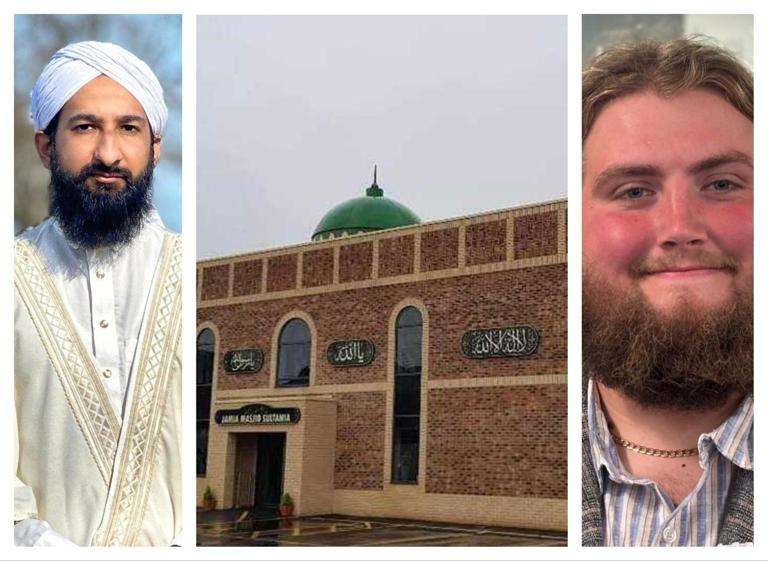
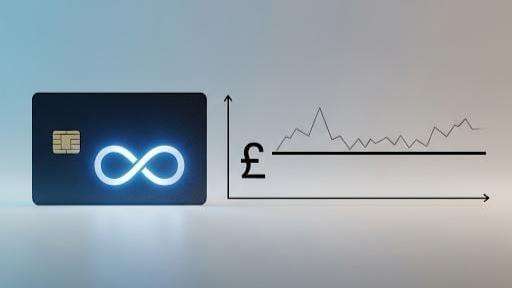
_9.jpg)
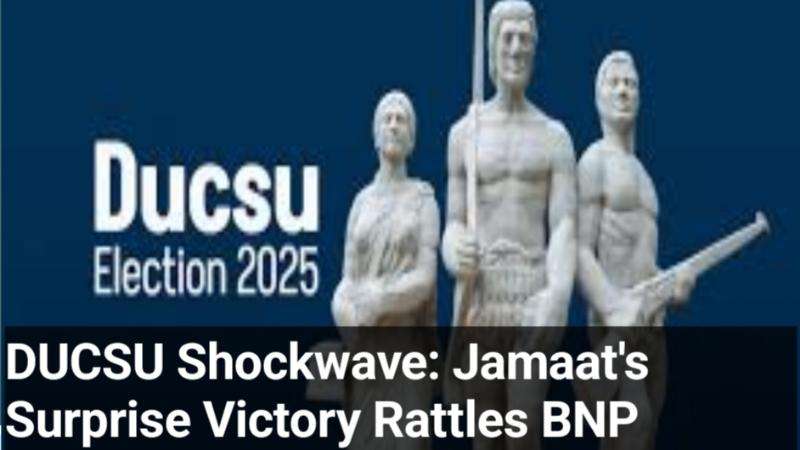


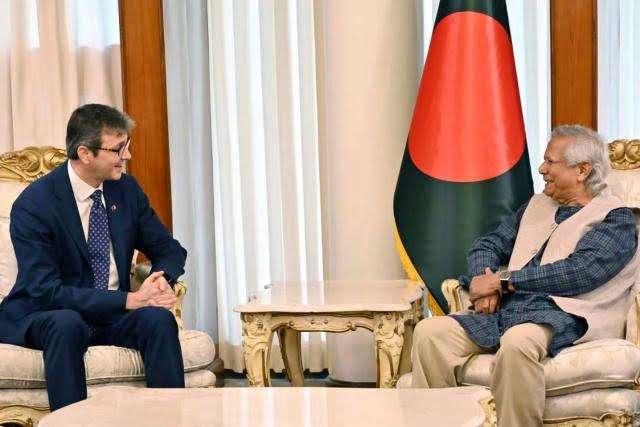
.svg)

